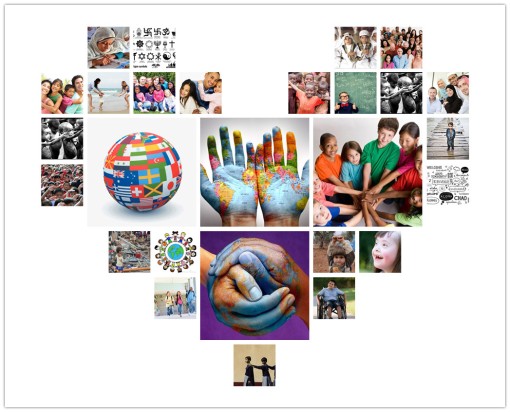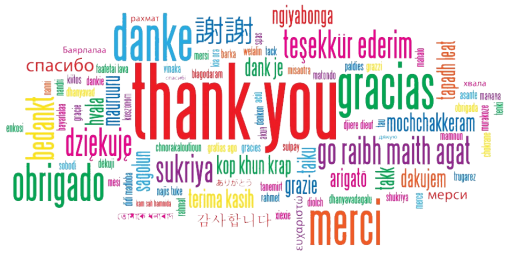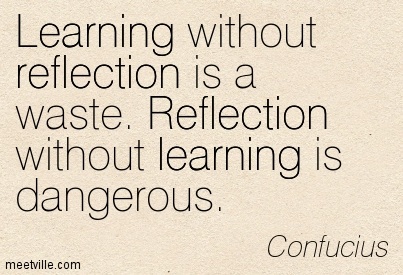
I would like to use four songs to express my idea about working with children and families who come from diverse backgrounds.
Song 1: <Hello to All the Children of The World>
Lyric:
Hello, Bonjour, Buenos dias!
G’day, Guten-Tag, Konichiwa…
Ciao, Shalom, Do-Brey dien,
Hello to all the children of the world!
We live in different places from all around the world.
We speak in many different ways!
Though some things may be different,
We’re children just the same- And we all like to sing and play!
Hello, Bonjour, Buenos dias!
G’day, Guten-Tag, Konichiwa…
Ciao, Shalom, Do-Brey dien,
Hello to all the children of the world!
There are children in the deserts,
And children in the towns,
And children who live down by the sea!
If we could meet each other,
To run and sing and play-
Then what good friends we all could be!
Song 2: <The More We Get Together>
Lyric:
The more we get together
Together, together
The more we get together
The happier we’ll be
‘Cause your friends are my friends
And my friends are your friends
The more we get together
The happier we’ll be
Oh, the more we get together
Together, together
The more we get together
The happier we’ll be
Song 3: <It’s A Small World After All>
Lyric:
It’s a world of laughter
A world of tears
It’s a world of hopes
And a world of fears
There’s so much that we share
That it’s time we’re aware
It’s a small world after all.
It’s a small world after all
It’s a small world after all
It’s a small world after all
It’s a small, small world.
There is just one moon
And one golden sun
And a smile means
Friendship to every one
Though the mountains divide
And the oceans are wide
It’s a small world after all.
It’s a small world after all
It’s a small world after all
It’s a small world after all
It’s a small, small world.
Song 4: <My Family Just Right For Me>
Lyric:
A Family is people and a family is love,that’s a family.
They come in all different sizes and different kind.
But mines just right for me.Yeah. Mine just right for me.
I got a friend who lives with his mom and dad with his brother and his sister too.
They got a cat and a dog and a pet bullfrog and I really glad they do.
Oh a Family is people and a family is love, that’s a family.
They come in all different sizes and different kind.
But mine just right for me.
Yeah. Mine just right for me.
There’s a girl I know who lives with her mom, her dad lives far away.
Although she see her parents just one a t a time.
They both love her everyday.
Oh a Family is people and a family is love, that’s a family.
They come in all different sizes and different kind.
But mines just right for me.
Yeah. Mine just right for me.
I know a boy who’s new,
he just moved in, he moved from Alabama.
And the person who’s the head of his family is his loving, dear old grandma.
Oh a Family is people and a family is love, that’s a family.
They come in all different sizes and different kind.
But mines just right for me.
Yeah. Mines just right for me.
My hope is that children will learn to be confident and demonstrate positive social identities. They are showing open-minded and respect towards human diversity, understanding difference makes the world flowery but not the factor of creating conflicts. I really hope all children will have a happy and safe childhood, they can have equal opportunity for learning and living, being treated respectfully regardless their family background and societal identities.
“We hope the day will come when the “anti-bias” part of [your] journey is no longer needed because all children are growing up fully nurtured and able to be fully who they are, with no barriers of prejudice, discrimination, poverty, or war”, (Derman-Sparks & Olsen Edwards, 2010, p. 157).
The goal related to issues of diversity, equity, and social justice I would like to set for is to help develop cultural and developmental appropriate curriculum for children and families living in the rural area in Southern China. Because these families are having insufficient income to support their children’s education and learning materials. Many schools in this area are not having enough budget to buy learning and teaching materials, so they can only adapt to whatever learning materials to give lessons to young children. Many of the books and other resource come from donation, some of them confused children as there are bias and inappropriate massages in the content. Therefore, in the future I hope to participate in the project of developing cultural and developmental appropriate curriculum and/or text books for children and families from the developing area in Southern China. I want them to grow up in a happy and healthy life and be able to change their situation through knowledge.
In the end I would like to take this opportunity to give thanks to all my colleagues from the courses of ‘Diversity, Development, and Learning’ in Walden. It has been an amazing journey leaning with you, and my world was enlightened by all your ideas and inspirations. Best wishes to your future studies and the journey to become an anti-bias teacher. Keep on keeping on!
References
Derman-Sparks, L., & Olsen Edwards, J. (2010). Anti-bias education for young children and
ourselves.Washington, DC: NAEYC
“Hello to All the Children of The World”, (n.d.). Retrieved from: https://www.musixmatch.com/lyrics/Wee-Sing/Hello-to-All-the-Children-of-the-World
“The More We Get Together”, (n.d.). Retrieved from: https://www.youtube.com/watch?v=lldmkrJXQ-E&list=RDlldmkrJXQ-E#t=31
“It’s A Small World”, (n.d.). Retrieved from:
https://www.youtube.com/watch?v=F9YqCP_B7EU
“My Family Just Right For Me”, (n.d.). Retrieved from:














Recent Comments